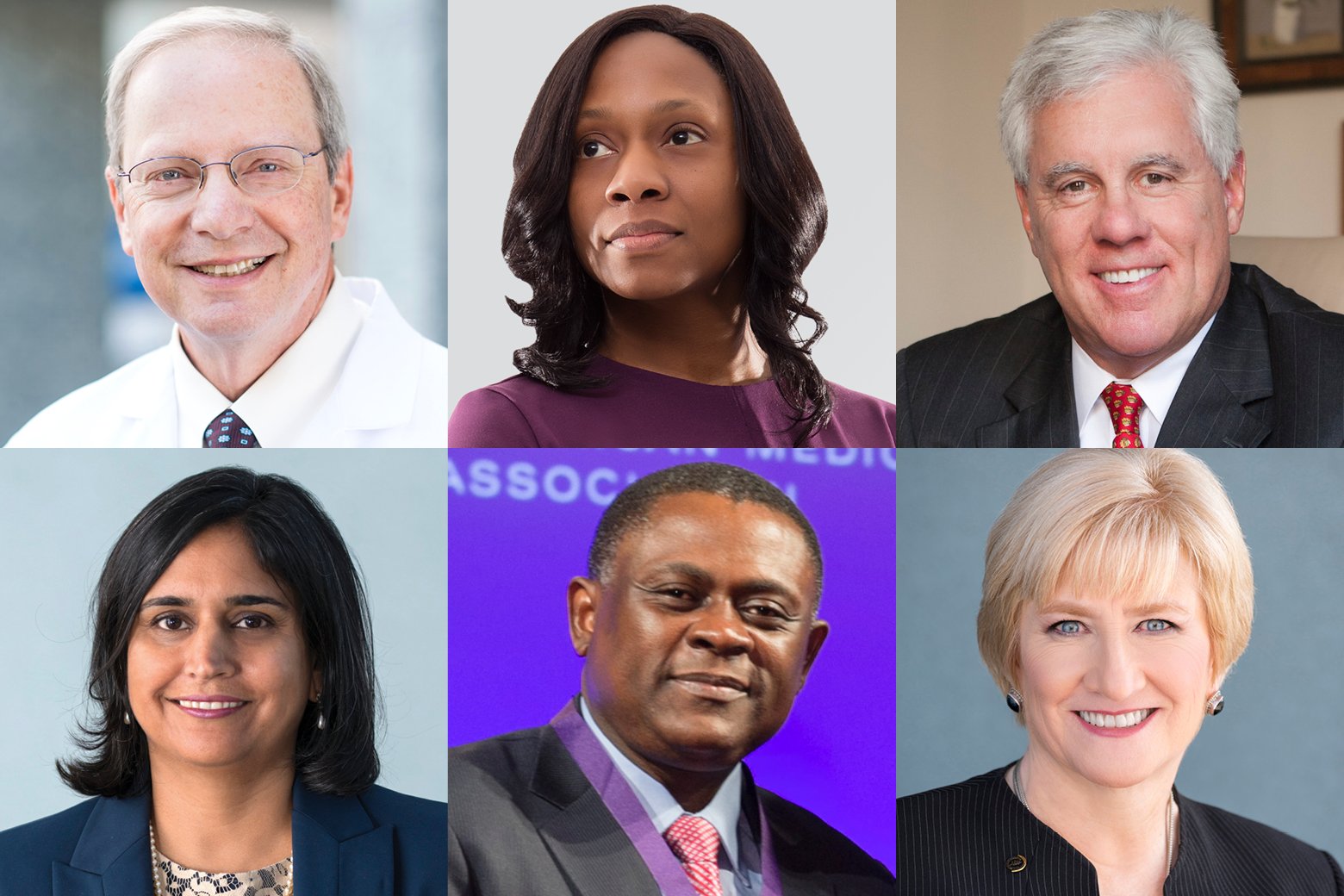What could be harder than finishing your last two years of medical school during a once-in-a-lifetime global pandemic? Perhaps starting internship in the pandemic’s third year fits the bill.
Regardless of which physician specialty you’ve chosen, you will learn quickly enough in residency that practicing medicine is only part science. Some lessons cannot be gleaned from a textbook or lecture.
To offer new resident physicians insight on the intangible aspects of practice, some of the nation’s top physicians shared the lessons they wish they had known as interns. Here is their top residency advice.
Take advantage of your opportunities
“I didn’t know what I was looking for in a residency or a fellowship because I didn’t understand how the world worked,” said Barbara L. McAneny, MD, a board-certified medical oncologist/hematologist from Albuquerque, New Mexico, who served as the AMA’s 173rd president in 2018–2019.
“I knew nothing about how health care was structured or where I would fit in it,” she said. “I just chose the specialty that appealed to me both for the science and the heart, and I really lucked out that oncology turned out to be such a great career.
“I wish I had done an MBA or a law degree and studied health policy,” Dr. McAneny said. “How I would have fit that in, I have no idea, but it would have been very useful. That said, if you decide to go this route, don’t let an advanced degree program mold you away from creative thinking about health systems.”
Read more from Dr. McAneny about why women physicians need to know the business side of health care.
You succeed with support
“‘You don’t know what you don’t know’ is something I’ve learned over the years, and that insight would have been helpful as a resident,” said Ronald J. Vender, MD, the former chief medical officer at Yale Medicine and also former associate dean for Clinical Affairs at Yale School of Medicine.
“That’s one important reason to develop close working relationships with nursing colleagues,” added Dr. Vender, a Yale professor of medicine and special adviser to the chair. “An experienced nurse often knows far more than a junior resident, and often has better developed clinical instincts. It also would have allowed me to ask more questions rather than think I had to find all of the answers myself.”
Learn how Dr. Vender and his colleagues at Yale used simpler logins and voice recognition to ease EHR click fatigue.
Voice your concerns
“A focus of our work is building and sustaining a culture of safety in health care where people—including all levels of staff as well as patients and their loved ones—feel comfortable raising concerns and asking questions,” said Tejal Gandhi, MD, safety office at Press Ganey, the patient-experience survey firm.
“During my residency, the times were different,” noted Dr. Gandhi, who earlier in her career served as chief clinical and safety officer at the Institute for Healthcare Improvement. “We weren’t necessarily encouraged to speak up when something seemed unsafe. I wish I had known from day one the importance of our voice, and how critical it is for anyone on the care team with a safety concern to speak up about it, regardless of rank.”
Learn how every doctor you’ve admired has dealt with burnout—Dr. Gandhi was among those who shared her advice.
Embrace uncertainty
“When I started my residency in internal medicine and pediatrics, I was unaware of what I ultimately wanted to do in medicine,” said Fatima Cody Stanford, MD, MPH, MPA, an obesity medicine physician-scientist at Massachusetts General Hospital and Harvard Medical School.
“I did not feel as though I had anyone’s footsteps in which I wanted to follow,” she said. “This created a certain level of angst, but I would recommend residents take it a day at a time. Soon after this initial angst, I decided to navigate a new path in obesity medicine. As one of the first fellowship-trained physicians in the field, I am glad that I followed the parts of medicine that brought me joy.”
Find out how Dr. Stanford is working to end the obesity shame game.
Practice self-care
“I wish someone would have given me a talk or lecture on how to manage my time and life—how to get more sleep and rest, and how to learn to be happy,” said Bennet Omalu, MD, MPH, a forensic pathologist who was awarded the AMA’s highest honor for his discovery of chronic traumatic encephalopathy.
“I did not know any better, so I defined my life by my work and professional attainments,” he said. “That was a total disaster for me, eventually—my depression got worse. At some point, I actually began to exhibit self-destructive behavior.
“It was only after my residency that I realized I had to redefine and reorient my life and begin to learn how to be happy outside my work.”
Read this in-depth profile of Dr. Omalu, “Recognizing the patterns of truth.”
Grow your knowledge every day
“The habits of mind one creates and nurtures during residency will pay dividends through a lifetime of practice,” said Robert Wachter, MD, professor and chair of the Department of Medicine at the University of California, San Francisco School of Medicine.
“The key one, which is particularly challenging during internship, when one is trying to survive each day, is to strive to learn one new thing related to one of the patients on the team, each and every day,” said Dr. Wachter, a founder in the hospital medicine specialty whose most recent book is called The Digital Doctor: Hope, Hype, and Harm at the Dawn of Medicine’s Computer Age. “This can be by looking up an article or a summary paper or by talking to a consultant. This habit will lead to tremendous growth in fund of knowledge and clinical sophistication, and also pave the way to continue learning throughout your professional lifetime.”
Hear from Dr. Wachter in this AMA “Making the Rounds” podcast on the digital age’s growing pains.




